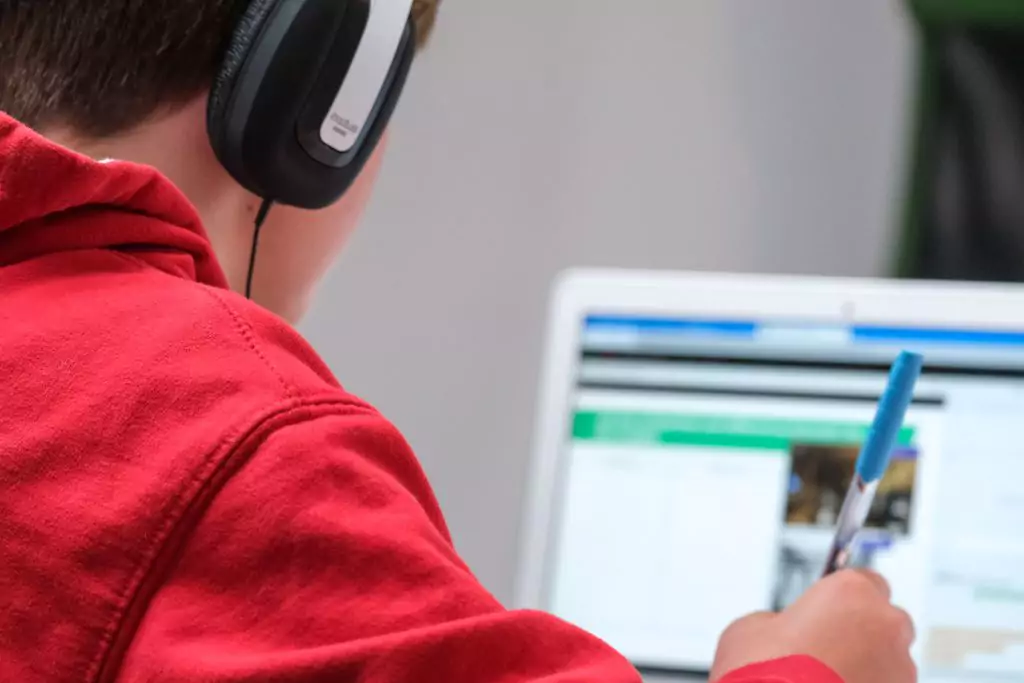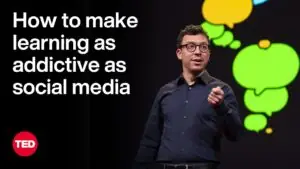
A recent report from the BBC uncovers a growing trend among language enthusiasts who are turning to Artificial Intelligence (AI) to sharpen their language skills. The cutting-edge technology not only offers corrections but even provides regional dialect variations, making it a helpful companion in the language learning journey.

✅ AI Essay Writer ✅ AI Detector ✅ Plagchecker ✅ Paraphraser
✅ Summarizer ✅ Citation Generator
Key Takeaways:
- AI chatbots are becoming increasingly popular as language learning tools, offering error corrections and regional dialect variations.
- Developers are creating customized AI apps specifically for language learners.
- While convenient, AI chatbots have their limitations and cannot replace the human touch in language learning.
AI chatbots like ChatGPT are gaining traction among people worldwide who want to learn new languages. These chatbots offer the convenience of time (no time zone worries) and help in correcting mistakes. A Costa Rican construction worker mentioned, “It’s saved him a great deal of time to be able to find an English word for a tool by describing it.” Moreover, a South African café owner with ADHD found ChatGPT particularly useful in quickly generating study aids such as verb tense charts.
Developers Ride the Wave
Developers are fast to respond to the booming interest in AI-assisted language learning. Using open-source codes, they are tailoring AI apps to the specific needs of language learners. “We worked really hard to make this well-tailored for somebody who wants to learn languages,” Federico Ruiz Cassarino, who launched LangAI in March, tells BBC. These custom-made apps are considered more apt for learners compared to general chatbots.
“Replika has been useful for her students to practice informal English,” says Blanka Klímová, an associate professor of applied linguistics at the University of Hradec Králové in Czechia. However, she mentions that general chatbots can sometimes have repetitive conversations and lack language corrections.
The Human Touch Remains Unmatched
Despite the convenience of AI chatbots, they can’t match the joy of communicating with a real person. “The convenience and breadth of an AI chatbot can’t compete with the pleasures of chatting with someone whose personality quirks I’ve learned over the course of years,” says a language learner who has been using ChatGPT.

Although AI is revolutionizing language learning, experts express concerns regarding the accuracy, biases, and data privacy issues. Emily M Bender, a professor of computational linguistics at the University of Washington, raises concerns regarding biases and inappropriate language that learners might inadvertently pick up from the chatbots.
Blanka Klímová acknowledges that there will be an enormous market for these technologies. However, she mentions that teachers will still have an essential role as mentors and facilitators. “It’s just a matter of time when artificial intelligence will replace us as teachers of foreign languages,” she states. Nonetheless, she emphasizes that teachers need to reassess their methods and role in education as technology continues to evolve.
So What?
AI chatbots are ushering in a new era in language learning. While they offer numerous advantages, including convenience and instant corrections, the human aspect of learning cannot be overlooked. As AI continues to evolve, educators need to adapt and find ways to incorporate these technologies in ways that complement traditional learning methods.
Read also:
Chegg to Lay Off 4% of Workforce Amid Rising Competition from OpenAI’s ChatGPT
When Language Learners Feel Like Natives
Behind the Scenes of Duolingo’s Language Learning Revolution
Follow us on Reddit for more insights and updates.





Comments (0)
Welcome to A*Help comments!
We’re all about debate and discussion at A*Help.
We value the diverse opinions of users, so you may find points of view that you don’t agree with. And that’s cool. However, there are certain things we’re not OK with: attempts to manipulate our data in any way, for example, or the posting of discriminative, offensive, hateful, or disparaging material.